Concept projects, monographic reading and other ways to avoid reading-related panic attacks
My 2025 reading goals, revisited.
Pre-script: Recently I have had the sweet pleasure of meeting some of you guys in person (on Zoom, but still) and loved our chats so much that I realized how much I would love to get to know more of you. And, for that reason, I invite you to join me for our first ever Zoom Book Chat on Sept 6, at 1PM Central. We will talk about how our reading is going and what reading plans we’ve made for the rest of the year. Since this is our first Zoom, I will make it open to paid subscribers only and will send the actual invite a few days in advance. If you are interested in upgrading your subscription, I am offering a special 25% discount between now and Sept 6! Hope you can make it!
My kid went back to school last week and I had a proper panic attack. We are more than halfway through the year and what have I even accomplished?! So, in the interest of preventing a full-blown shame spiral and maybe even inspiring some mutual accountability, I thought it would be a good idea to revisit some of my reading goals from earlier this year, see how I am doing against them and do a little reset.
At the end of last year, I organized some thoughts around reading authentically and what that means FOR ME:
I read widely about books and reading before I decide what to read next. I organize my reading into reading projects so that even if I am deciding spontaneously what to read next, the book itself is in conversation with other books that I am interested in. If I love a book, I give it extra time and attention — to journal and / or annotate it. If I love it extra-extra-extra much… YOU will know because I won’t shut up about it. 🫣
This “system” works because it acknowledges both my heart's need for freedom and my mind's desire for order. It allows me to move forward with both intuition and focus, to be both the reader I am and the reader I wish to become.
I know myself well and know that I am the moodiest of readers and having a list of titles does not really seem to motivate me. But, at the same time, I am committed to focus and growth. To that end, I identified a set of reading goals to guide me along. I call them Concept Projects — please tell me if you think that label does not work — but they are essentially just loose frameworks to read within. Structure AND freedom, if you will.
To arrive at a somewhat objective assessment of how I am doing against each goal, I have listed them all below and color coded them for status. Here’s how to read the table below:
🟢→ SIGNIFICANT PROGRESS MADE
🟡→ SOME PROGRESS MADE
🔴→ NO PROGRESS MADE
So, without further ado, let’s see how I’m doing so far.
🟢 Goals 1-3 - Monographic Reading
Goals 1 through 3 generally encapsulate my desire to go a little deeper on authors I like. I have started referring to this type of reading as monographic reading. It’s a term I have adapted from the academic world, where a monograph refers to a detailed written study of a single specialized subject or an individual. In academia, when someone says they’re writing “a monograph on Woolf’s use of silence,” they mean a focused, in-depth analysis of that one aspect of that one author.
In my context, I am basically making an effort to read my way through some authors’ full body of work, studying their evolution, paying attention to style and recurring themes. It’s not (yet!) a widespread phrase, but it has the right flavor:
It conveys focus and intentionality.
It signals a reading practice that's not just bingeing, but almost academic in feel.
It respects the reading impulse as study, even if it’s deeply personal and driven by mood rather than syllabus.
Of all my reading projects, this is the one where I have felt most successful and most inspired. So far this year I’ve become a completionist of Claire-Louise Bennett, Constance Debré, and Ayşegül Savaş. I’ve read 4 books by Elena Ferrante, 3 by Deborah Levy, 2 by Annie Ernaux, and 2 by Adam Phillips. Returning to authors continuously AND reading authors who are in conversation with each other has truly made me feel like I jumped a level in my reading game and I plan to keep going in this way for as long as it feels right.
🔴 Goal 4: 19th Century Wives Under Pressure
This was the project that I felt the most excited about at the beginning of the year. I joined to slow reading groups — for Anna Karenina and Middlemarch. I started reading both books and was in total shock how much I loved them. However, I quickly discovered (both times!!!) that for some reason I am unable to keep up with the group rhythm. I felt that in both cases I felt either stalled prematurely, sticking to a schedule while my brain wanted MORE or unable to keep up on busy weeks. Either way, I could not find my rhythm and have felt so much guilt and shame around this.
But I have read enough in these books to know that I love them both and I think I still have time to read them before the end of the year, on my own time.
🟡 Goal 5: Poetry and prose intersections
I am giving myself partial credit on this one because even though I have not read novels by poets (the book that inspired this goal was Martyr! by Kaveh Akbar), I have been reading plenty of poetry (for me) and loving that experience.
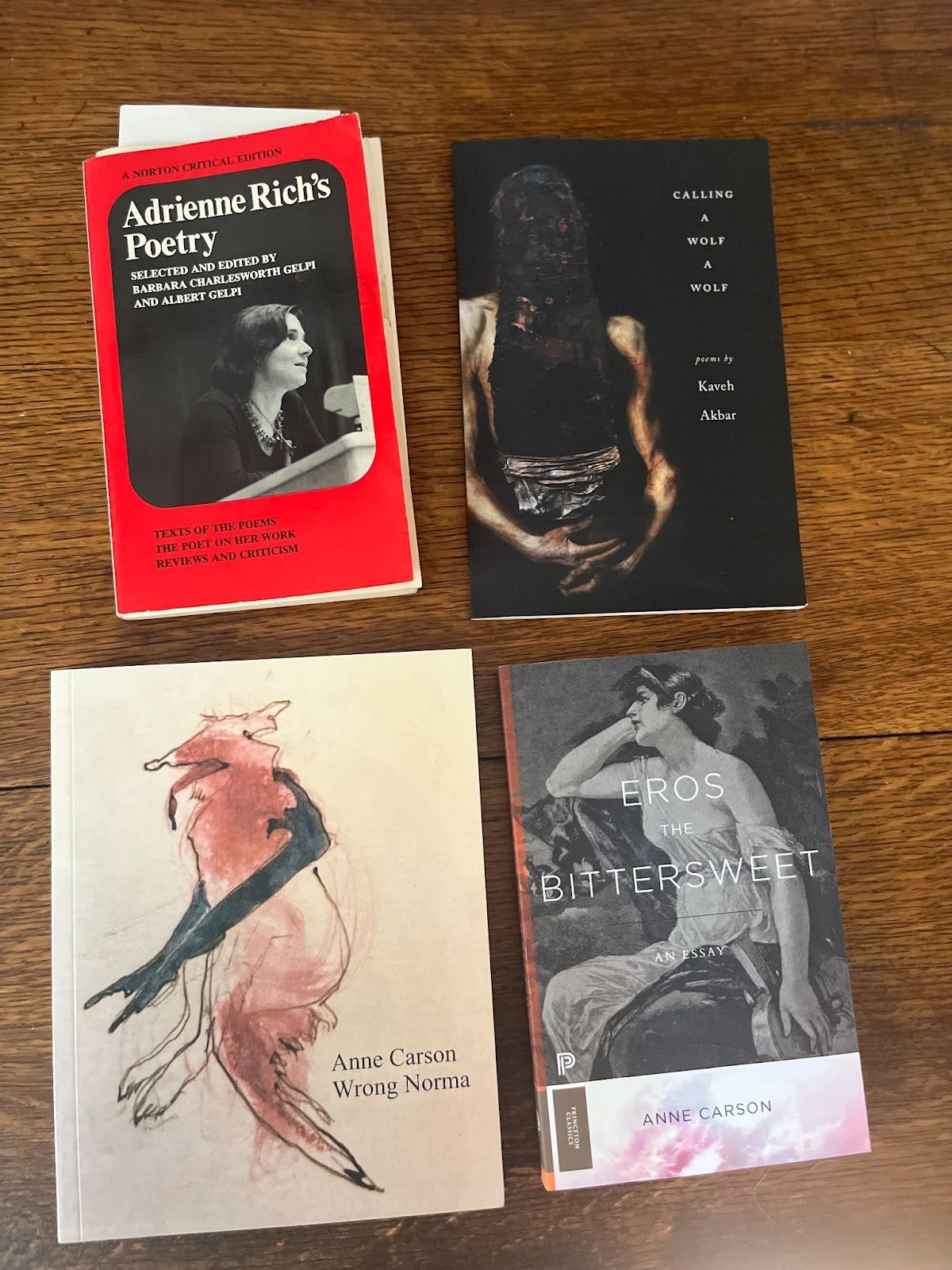
I fell off the poetry wagon in June and July which surprised me. I thought that given how busy I was with our family summer chaos schedule, AT MINIMUM I would be able to read poetry. But I have come to realize that even though building up a poetry muscle is absolutely possible, reading poetry is actually very challenging and it requires a more focused mind, at least for me. Now that we are back to our routines, I know that I will be able to get back to this.
🔴 Goal 6: Re-reading
Miserable failure on this one. I am so in my head about re-reading. Re-reading feels like a waste of precious reading time. Intellectually, I understand that this is not the case and I can list multiple reasons why re-reading is a good idea but I am not able to make myself actually do it. I do have some ideas of re-reading projects though — I have been toying with the idea of revisiting Rachel Cusk’s Outline Trilogy (also, a series). Madame Bovary, which is part of my 19th Century Wives project, would also be a re-read. I read the book in my late 20s (already married) but I am dying to find out how it feels now at 44.
🟢 Goal 7: Reading series
I am making solid progress on this one. I completed Constance Debré’s Trilogie, I am on book 3 of The Neapolitan Quartet by Elena Ferrante, and just returned to the second book in Deborah Levy’s Living Autobiography. In addition to fulfilling my monographic reading impulses, working through series has felt very helpful in moments when I felt frazzled or distracted. Going into the next book of a series felt less laborious and did not take as much out of me as a completely new author / title typically would.
🟢 Goal 8: Resisting the hype machine
I am so glad I set this goal because it’s been a persistent reminder to do my own thing, stay in my lane and resist the urge to have an opinion or a hot take on every new book that comes out. That being said, I read some pretty great new releases! Here are my favorite new releases of the year so far:
Fiction: Nova Scotia House by Charlie Porter
Non-Fiction: Pathemata by Maggie Nelson
Poetry: Ecstasy by Alex Dimitrov
Honorable mention / Hard to categorise: The Möbius Book by Catherine Lacey
I have also been so excited for August as it’s publication month for debut novels by and . And I can’t wait to share more about both later in the month!
🟡 Goal 9: Starting at the library
Like my friend , I aspire to be a library baddie. However, given my taste, it’s been hard to get hold of books that I am interested in through my regular library card. After consulting the good people on Notes and pulling some strings, I am now the proud patron of the University of Memphis Library and with that academic access card I am feeling pretty unstoppable.
🟢 Goal 10: Reading theory and criticism
Of all my goals I set out at the beginning of the year, this is probably the most sensitive one. Given that I am still processing my grad school trauma, I have felt anxious about reading theory and criticism but, thankfully (and with a lot of credit due to Adam Phillips’s work), I have begun to untangle THOSE feelings from my desire to WORK through some denser texts.
I definitely give myself an A+ for effort here but also feel pretty lucky that I stumbled upon Phillips’ work at just the right time. Being able to connect to an author (Phillips), a subfield (psychoanalysis) and thematically adjacent novelists (Elkin, Levy, Nelson) has not felt like running in a parallel track but rather has made the effort feel focused, meaningful and additive to my reading.
I am so glad I did this review because in doing so, I realized that I am actually making pretty decent progress against my reading goals AND I am actually still very excited about all them, even the ones that have proven difficult.
If you feel like you are reading a lot but still missing some focus & depth, I highly recommend you set up some Concept Projects for yourself. You would be shocked how much of an impact a little bit of definition would have on you, even in a short period of time.
Last but not least, I went through my various curriculum piles I keep stacking around the house and pulled the titles I want to read before the end of the year. I put them all in a pile and plan to start working my way through right away. A visual, physical… somewhat aggressive TBR… but we gotta do what we gotta do, right? I will keep you posted on how it goes.
Some questions for you:
Have your reading goals changed this year?
What’s one thing you’re proud of in your reading life right now?
Want to share a Concept Project you’re thinking about for the rest of 2025?



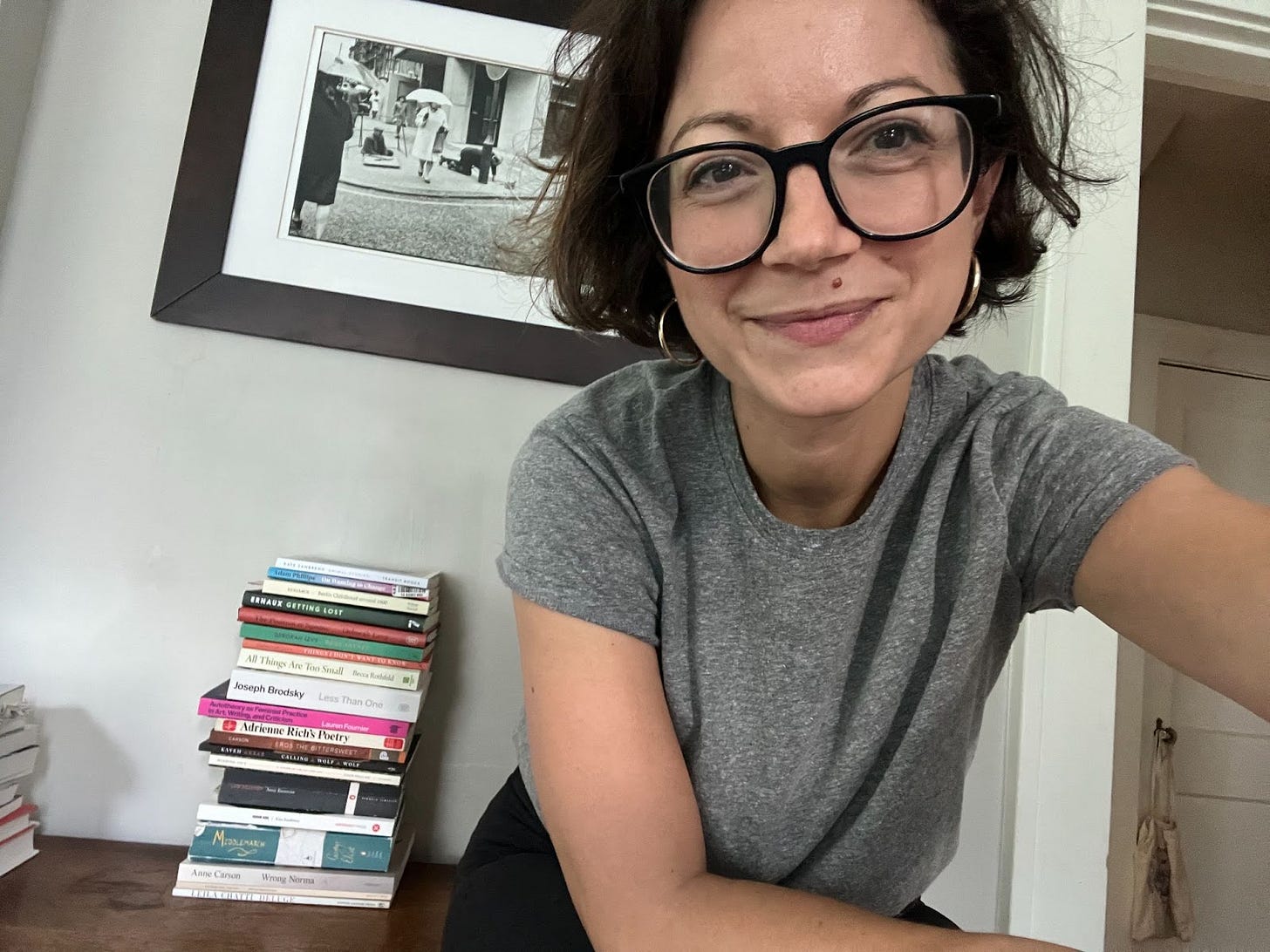

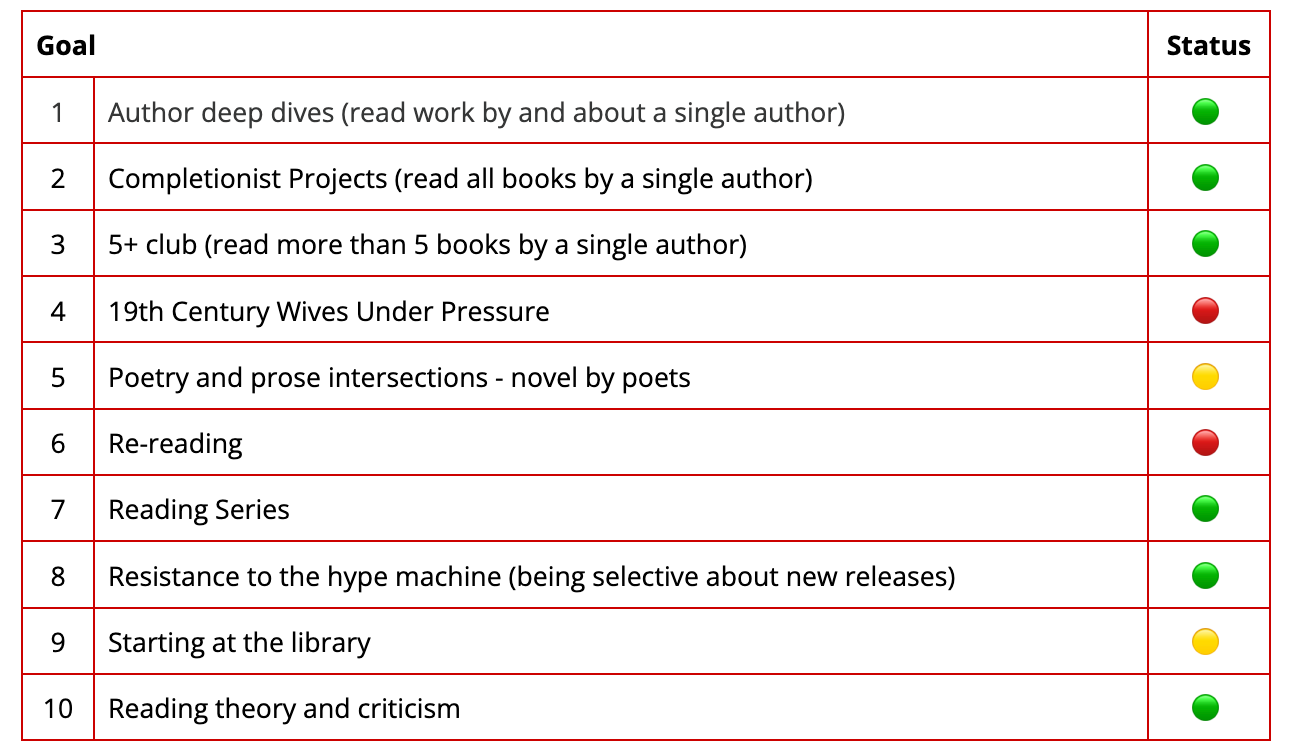
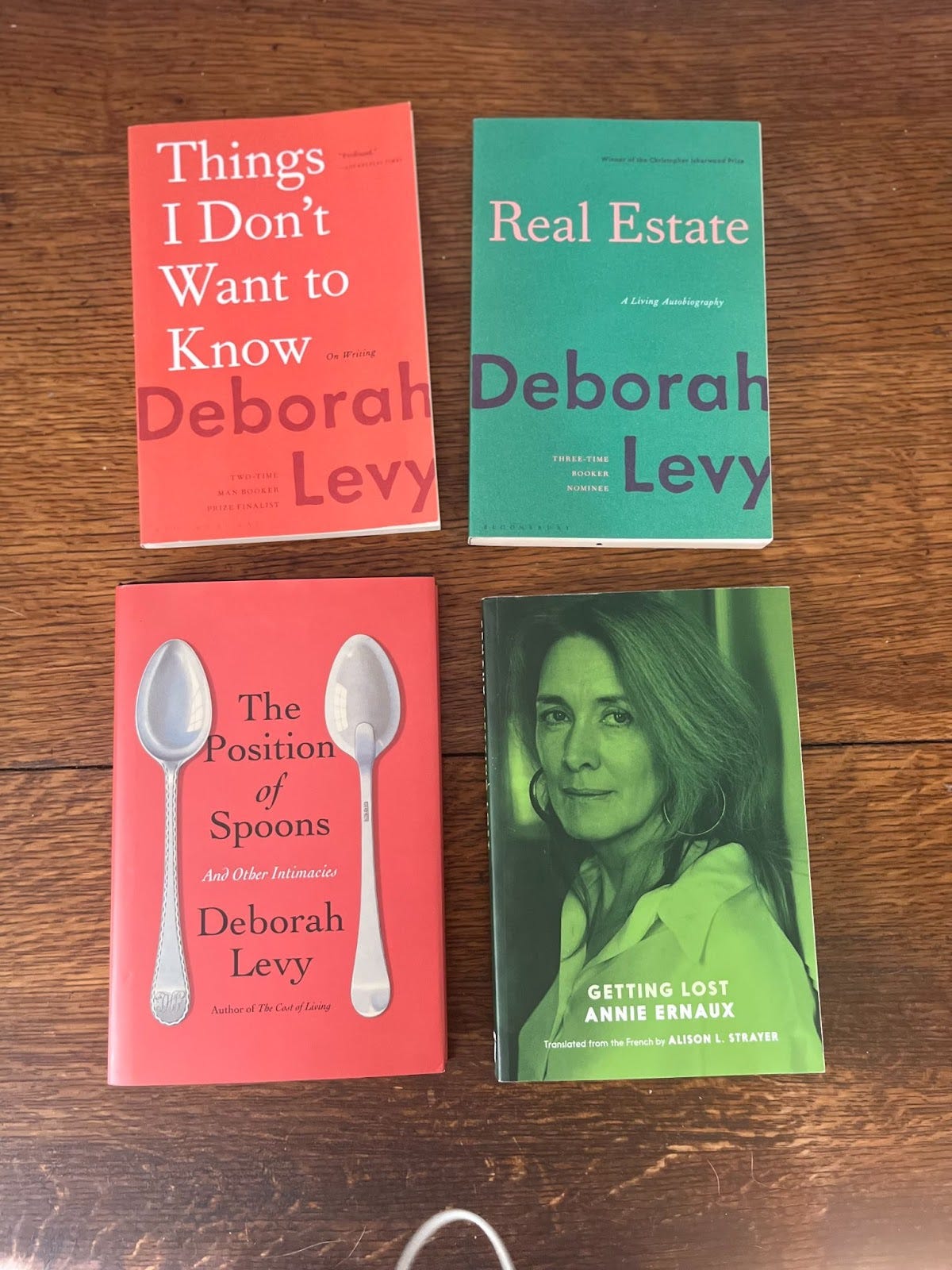
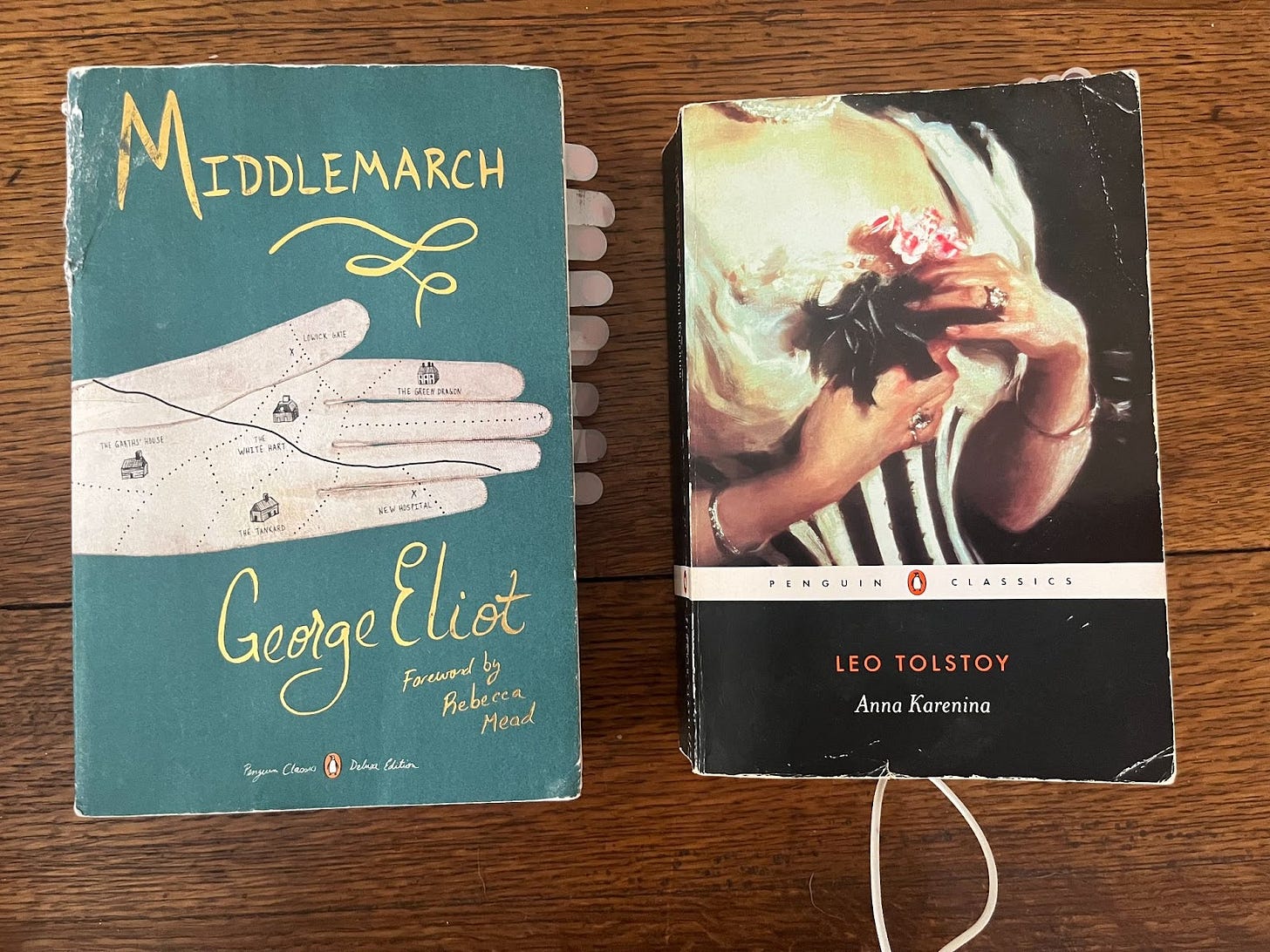
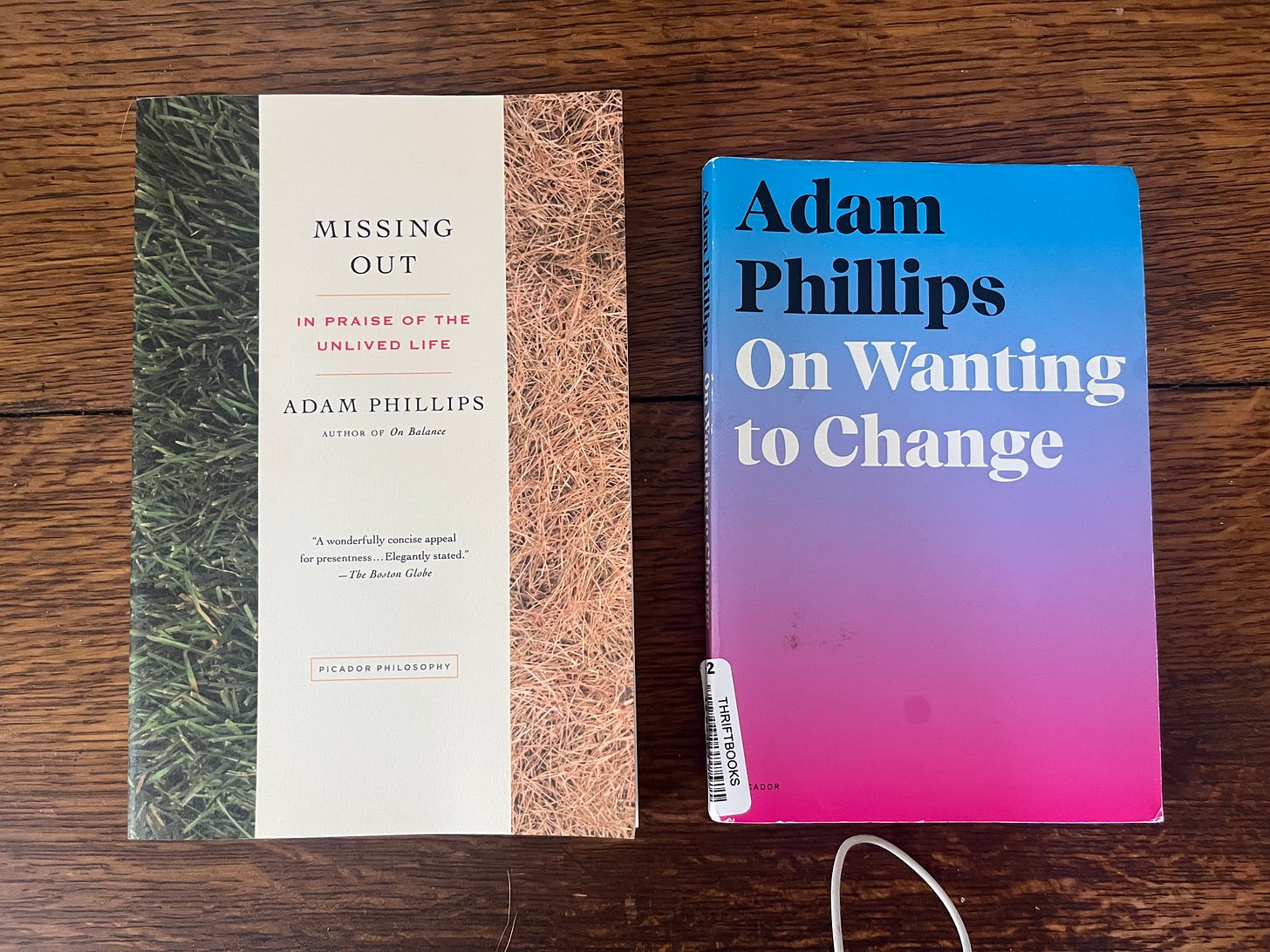

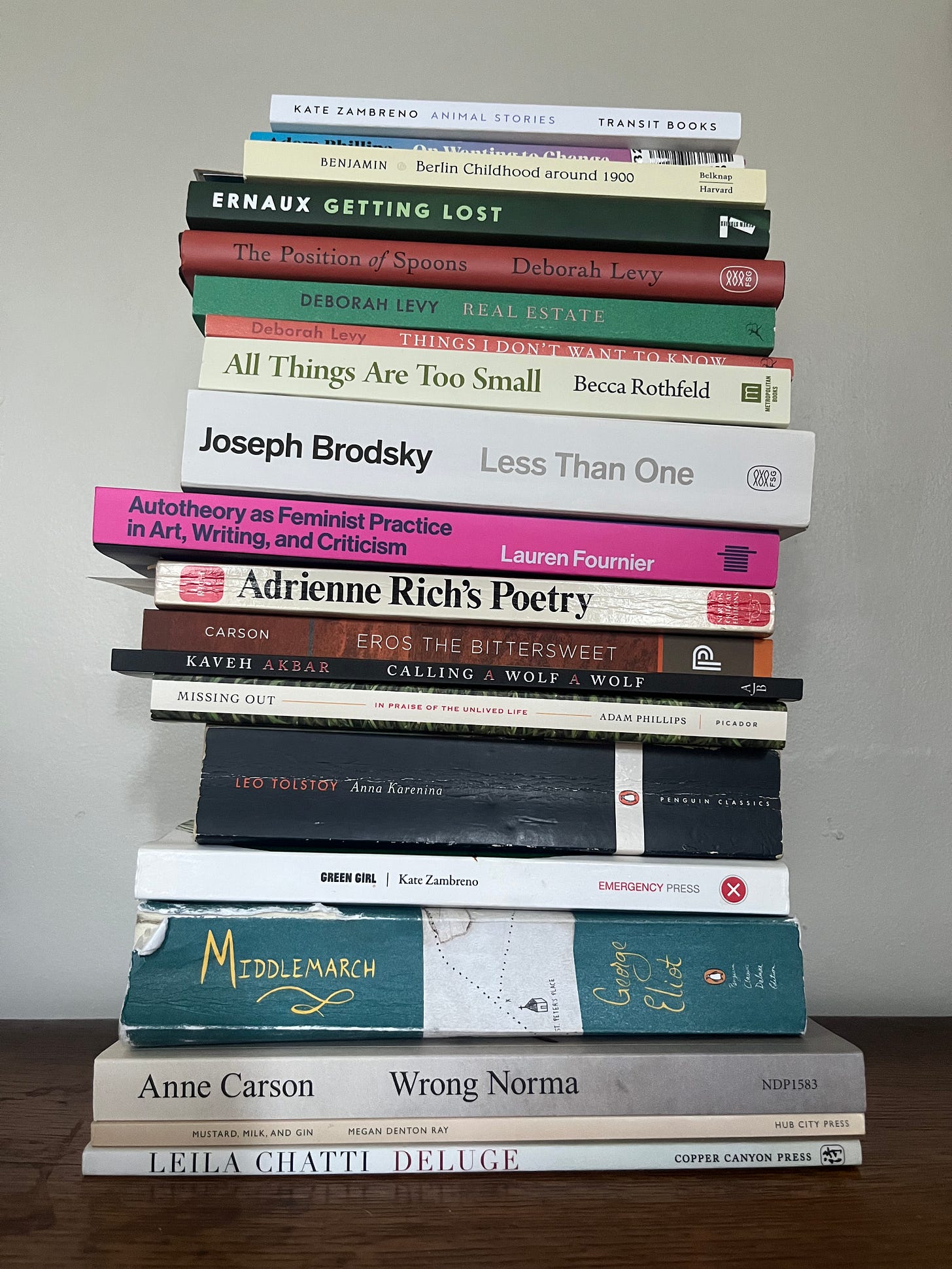
I really relate to your "concepts project" style reading and your reason for reading that way. I'd say that I'm more of a planned reader than a mood reader. But I do like the flexibility to not plan all of my reading out in detail far in advance and to give myself some freedom to choose within a certain framework while leaving room for picking up a spontaneous choice now and then. I do a similar type of "planning" as you by creating reading projects for myself, some that last a year and some that carry over multiple years. For example, for a few years I chose one specific type of writing (poetry, essays, short stories) each year and read several collections of that type over the course of the year. A while back I did a project called 192019 in which I read one book published each year from 1920 through 2019. 100 years worth of books but lots of choice within that. This year I'm finishing up a Jane Austen project that has lasted 7 years. Each year was focused on rereading one of her books and then reading (and watching) adaptations and retellings of that story. This last year I've been reading all of her juvenilia and unpublished works as well as Austen-adjacent nonfiction and fiction. Like you I'm also trying to intentionally work on reading all the works by favorite authors, reading from my shelves, rereading more, and reading more backlist. All that to say, I love to hear from other readers who "assign themselves reading projects" (as I like to call it) and how they approach it. So thanks for sharing all your thoughts on this with other readers!
Adore this post! My Concept Project has definitely been “Clothing and Textile history.” I’ve read 4+ books on this topic in the last 6-8 months and there is no stopping now. I love the completionist idea. Am tempted to go that route with A.S. Byatt as my other CP is prepping to run a slow read of Possession in September… there is definitely a 19th C wife under pressure in there if you feel called. 🤣. Middlemarch is worth it — I’m largely on track with that read, but my pacing has definitely not always matched the group’s, if that helps to know.